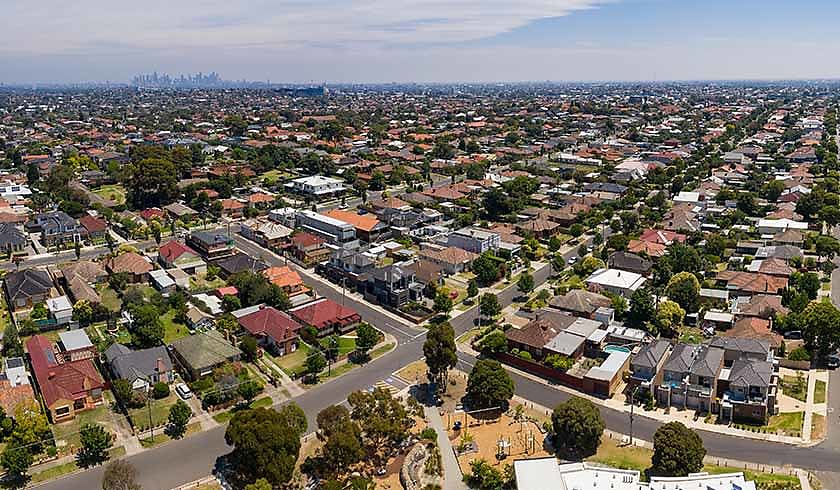Window of opportunity: Rate cuts and elections to fuel property market surge
Upcoming rate cuts, federal elections, and new buyer schemes could drive up demand and prices, with a property expert advising investors to buy sooner rather than later to stay ahead of the upcoming competition.

Australia’s property market is poised for change, as the upcoming federal elections and Reserve Bank of Australia (RBA) meetings are expected to boost buyer demand and property prices.
Momentum is expected to return with the “big four” banks predicting another rate cut during the RBA meeting on 19–20 May, reducing the rate by at least 0.25 percentage points.
While CBA, ANZ and Westpac expect three additional rate cuts in 2025, NAB has been forecasting five cuts, including a double cut of 0.50 percentage points in May.
PRD chief economist, Dr Diaswati Mardiasmo, said that the upcoming rate cuts could enhance demand, supply and prices nationwide, with markets such as Sydney and Melbourne poised to benefit the most from the momentum.
“If there are multiple rate cuts, it will increase demand at a faster rate than usual,” Mardiasmo said.
Recent data from Domain showed that capital city house prices rose by 0.7 per cent over the March quarter to nearly $1.18 million, marking the ninth consecutive and longest stretch of quarterly increases since 2012–15.
“The increased demand will have an impact in jacking up prices, in increasing prices in capital cities like Brisbane, Adelaide, Perth, that has seen positive growth in the past 12, 24 months,” she said.
“Sydney, which has been growing at a slower rate, will grow a little faster, and Melbourne will definitely turn the tide to recovery.”
Mardiasmo believes that further rate cuts will also drive up supply, albeit at a slower rate, ultimately increasing competition among buyers.
“With the rate cut going down, business developers and builders will be able to borrow more, which will reduce the cost of the business.”
“However, supply delays are expected because constructing homes takes time, while demand can arise as soon as tomorrow when someone decides that interest rates have gone down,” she said.
In addition to the rate cut forecast, the federal election results will also impact the property market, especially for first-time buyers.
Mardiasmo said that for the first time in Australian history, major political parties are presenting distinct first home buyer policies that address both demand and supply, driven by the growing influence of Millennials and Gen Z voters; however, each policy comes with trade-offs.
While she said that nothing is set in stone with the federal elections, Labour’s 5 per cent deposit scheme and the Coalition’s mortgage interest reduction both have implementation timelines and restrictions that diminish any immediate impact on investors.
“I don’t think that it’s going to impact them in the sense that they’re going to see investors start pulling out of the market.
“Investors rely on rentals, and our vacancy rates at the moment are still under 3 per cent in all of the capital cities.”
“Even if 10 or 20 per cent of renters become first-time home buyers, you still have 80 per cent of the cohort being renters, which is suitable for investors,” she said.
Nationwide, rental prices rose by 1.7 per cent in the March quarter to $654 per week across all dwellings.
Despite the pace of rental steadying, marking the slowest Q1 growth since 2019, Mardiasmo said investors should look at the vacancy rate before purchasing their next properties.
“Investors should scout for suburbs, outer suburbs or regional areas where the vacancy rate is below 1–1.5 per cent, because these areas need investors.
“At the moment, we still have plenty of places across the country where investors are needed.”
While Mardiasmo recognised that “nobody knows what will happen in May”, she advises investors who are ready to buy to enter the market sooner rather than later to avoid upcoming competition.
“I’ve got the money ready and just need that little bit of a push; there is a small window to hit before the market changes,” she said.
“As an investor, if there is a possibility of two, three, five cash rate cuts, my gut feeling will tell me to be in the market now before there’s more competition, and then benefit from lower mortgage payments as it comes to offset any other costs that I’ll have.”
However, Mardiasmo said that Australians should be rational when buying a property, whether they are seasoned investors or first-time home buyers.
“It’s a matter of actually not doing anything in panic and making sure that whatever it is that is being put in front of you is not just a thought or a prediction, but it’s something that is being legislated or something that is going to happen,” she concluded.
